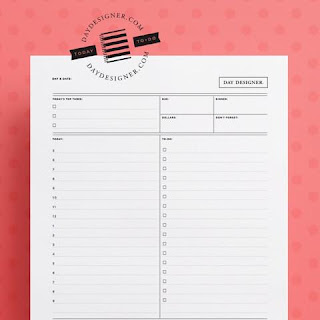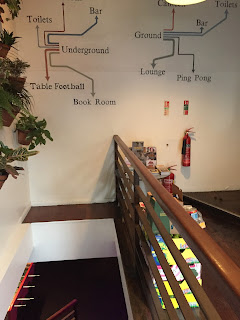As promised I am celebrating my second year anniversary with
the studyblr community by releasing my first set of printables. Theseprintables are available here or in the link below. I will be posting
them onto Tumblr as well sometime this week.
 Assignment(s) Progress Tracker.
Assignment(s) Progress Tracker.
The printable is essentially a progress tracker. Just fill
in your question, due date and description to begin. It should be used at the
beginning of the semester. You should use this sheet to track all the projects,
tasks, jobs, and exams that you have due.
I’ve included a progress management tool on the right side.
To use this tool break your project up into twelve components or less. Then every
time you finish a component color in a square.
By using this tracker, you can be sure you’ll never forget
an assignment or fall behind again!
Essay and written assignment planner
This planner is ideal for written pieces of work. It takes
you through the critical steps of setting up and argument. By breaking down the
argument and research onto this thought diagram, you can make sure you won’t
miss those essential steps that are preventing you from achieving high grades.
 We begin by writing a synopsis. This fundamental step will
guarantee that you fully understand what you are meant to do. Secondly, the
printable asks you to examine your course outline and rubric.
We begin by writing a synopsis. This fundamental step will
guarantee that you fully understand what you are meant to do. Secondly, the
printable asks you to examine your course outline and rubric.
These steps will
make sure that you’re not writing something that your teacher doesn’t want to
read.
A targeted piece of writing that fits what the examiner
wants to see will always fair better than a random piece of writing that
doesn’t quite suit the course’s intention.
From there we move onto examining the question – but don’t
get too keen too fast! Break your chosen statement down into ‘operative terms.’
Operative words are the key features of the statement. These keys words are
what the entire argument will hinge on.
Example:
To what extent did English law affect Australian Law during
the 1850s?
In this example the operative words would be;
[Extent] -Shows you need to show a ‘degree’ of application,
e.g., mostly, likely, partially, not at all or completely.
[English Law] – Shows a critical condition for your answer.
[Australian Law] – Shows an essential condition for your
answer.
[the 1850s] – Shows a key restriction and consideration for
your answer.
The next questions look at what research and what theory you
will need to apply.
You may choose to do these together depending on the
subject that you’re studying.
For subjects like law or English theories may be irrelevant
but you may like to supplement principles for authors, directors, artists, etc.
The general idea of these sections is to identify what is
most critical to your section. Knowing what, who and why of the most important
ideas in your field will help to narrow your research.
After this follows the section on your points.
 Feel free to download the printables and include more or
less points in your piece. This section is designed to be flexible and fit your
needs. To get the most out of it, I’d recommend writing a topic sentence out in
full. Then follow the topic sentence with dot points that flesh out your argument.
Feel free to download the printables and include more or
less points in your piece. This section is designed to be flexible and fit your
needs. To get the most out of it, I’d recommend writing a topic sentence out in
full. Then follow the topic sentence with dot points that flesh out your argument.
In between each box write a ‘linking’ statement that reveals
how you plan to build your argument with the next paragraph. This will
strengthen your writing and help the reader to follow any argument.
A study-day planner
Following that printable, I have designed a printable that
is useful for using when preparing for a day out studying. A lot of the time
when preparing to travel somewhere to study you may be anxious to make sure
that it is a productive day.
This printable includes:
A checklist for
things to bring
A checklist of
things to check before you choose your study destination
A session planner
questionnaire
 I included the questionnaire because to have a productive
day you must have clear goals. Simply telling yourself to ‘finish everything’
is not structured enough. It is far better to spend twenty minutes considering
which tasks you will do first and how long they will take you than ad hoc
drawing things from a pile of work.
I included the questionnaire because to have a productive
day you must have clear goals. Simply telling yourself to ‘finish everything’
is not structured enough. It is far better to spend twenty minutes considering
which tasks you will do first and how long they will take you than ad hoc
drawing things from a pile of work.
When estimating how long something will take you to
complete; a rule of thumb is to estimate how long it will take you to finish
and then double it. That will usually be enough time to help you complete the
work. It also gives you wiggle room in your schedule to take breaks and deal
with any mishaps along the way.
There are many ways to order your tasks; some suggest
putting the hardest first, and others suggest setting smaller tasks to build
the sense of achievement.
Personally, I promote using easier types of tasks first then focusing on harder ones. You should never use checking
emails as a starting task, but some small task like:
- Edit paragraph [a]
- Download next
lecture
- Complete reading
set [1]
They are all simple tasks that will help you get into the
productive swing. Setting long tasks such as ‘research issue [x]’ can take you
off track. When beginning any study session make sure that you are focused and
clear on your end goal.
If you are planning to study for a long time, you may want
to pencil in ‘checkpoints.’ These are preplanned breaks where you will review
where you are on your to-do list. These can be useful as they can allow you to
access whether you’ve set yourself too much or too little. It is also crucial
to give yourself multiple breaks when studying for a long period.
Lectures and tutorials...
The final two printables are a double set. The first is a
plan for making tutorial notes. By using this planner, you will structure the
information received in a tutorial in such a way that you can isolate different
parts of relevant information.
 I have also designed it so that it is simple to use and
won’t be distracting you from actually participating and listening in the
tutorial. I usually run off ten of these sheets at a time and keep them in a
folder. This makes it easier when it comes to exam time too because I don’t
have to flick through my entire notebook to find just one week.
I have also designed it so that it is simple to use and
won’t be distracting you from actually participating and listening in the
tutorial. I usually run off ten of these sheets at a time and keep them in a
folder. This makes it easier when it comes to exam time too because I don’t
have to flick through my entire notebook to find just one week.
The second plan is for your lectures. This is an overall
structure of a page that your notes could look like. It is my spin on the
popular ‘cornel method.’ If you have enjoyed that style of notes, I’d recommend
trying my printable. I’ve added in an extra section for a keyword tagline and
questions. These are important because when you return for later revision or as
a reminder to yourself about the lecture you have key words to fall back on.
Having the question section takes away the anxiety of having
to ask a question at the end of a lecture. Instead, you can write it down when
you think of it and email your lecturer or tutor after class. No more end of
class stress!
I hope all of these help your studies, and if they help you,
please let me know or tag me under #theunderagelawyer!
















